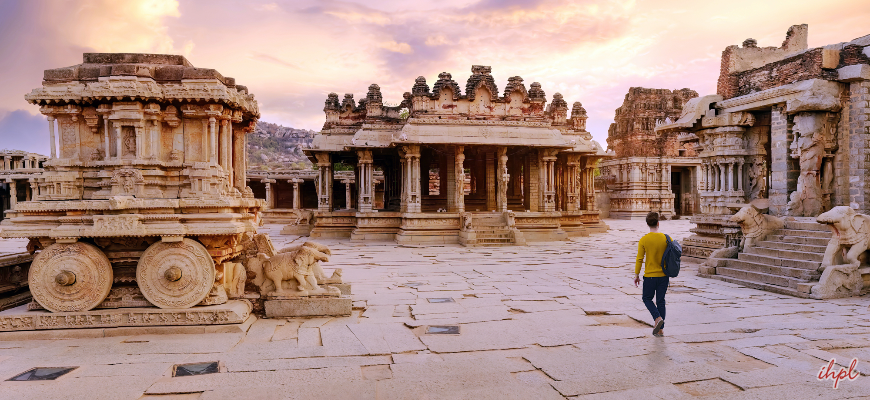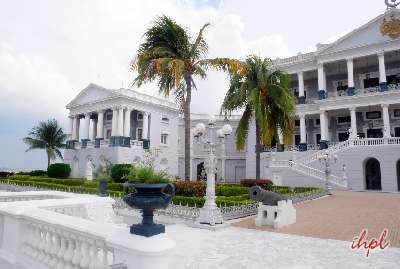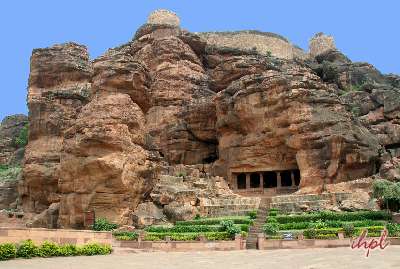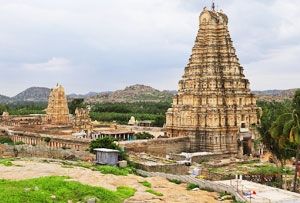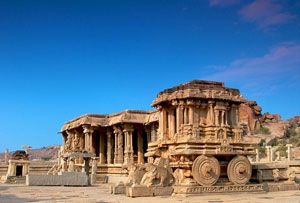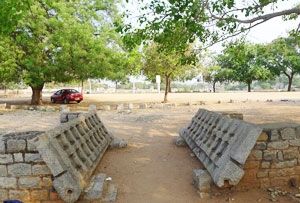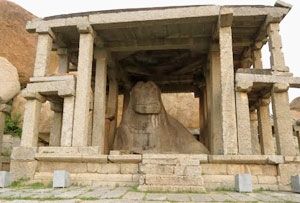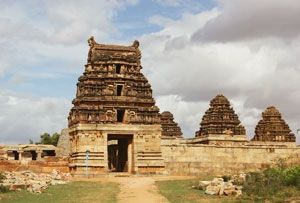Hampi welcomes nature & historical enthusiasts, urging them to explore scattered ruins and monumental structures. Its timeless charm promises a revitalizing retreat, seamlessly fusing tranquility with a celestial ambiance. The optimal time to explore this captivating destination’s UNESCO World Heritage sites depends on your inclinations. Choose your preferred season to reveal the splendor of this mystical land.
| Seasons | Months | Temperature |
|---|---|---|
| Summers | March to June | 28°C – 37°C |
| Monsoon | July to September | 25°C – 32°C |
| Winter | October to February | 15°C – 30°C |
When & Where to Visit in Hampi
Summer Season (March to June)
Summer in Hampi gradually increases temperatures, ranging from 28°C to 37°C. The region remains hot and dry throughout this time, making it difficult for sightseeing. Therefore, it is recommended to avoid May and June when planning to visit Hampi in the summer. However, during this time of the year you can witness the Virupaksha Car Festival, an annual ritual marking the marriage of Lord Shiva and Goddess Parvati. The idols of the divine couple are placed on a chariot and taken out on a procession.
Things to do in summer
- Sail on the Tungabhadra River in traditional coracles and serene landscapes.
- Explore the tiny islands in the river, come across ancient remnants, and enjoy peaceful surroundings.
- Watch the history of Hampi come alive with a spectacular light and sound show in the evenings.
Discover the best routes and experiences with our complete Hampi tour guide!
Monsoon Season (July to September)
Hampi experiences the monsoon season from July to September. During this time, the region detects heavy rainfall, and some areas may become inaccessible due to flooding. The season transforms the region into a verdant paradise, unveiling a different, yet equally exquisite side. Immerse yourself in the unique monsoon festivals like NariyalPoornima, where devotees offer coconuts to the river goddess. Besides this, be a part of the vibrant village celebrations as communities welcome the monsoon with music, dance, and traditional rituals.
Things to do in monsoon
- Embark on challenging treks through the muddy trails and encounter breathtaking vistas.
- Discover hidden waterfalls cascading down rocky cliffs, adding a refreshing element.
- Visit Virupaksha Temple and Hemakuta Hill to enjoy the panoramic views of Hampi.
Uncover the timeless beauty of Hampi’s historical places, from temples to ancient ruins!
Winter Season (October to February)
Winter months in Hampi, from October to February, are considered the best time to visit. The weather is pleasantly cool and comfortable during this period, with temperatures ranging from 15°C to 30°C. The days are sunny, making it ideal for sightseeing and outdoor activities. Plan a trip to Hampi architectural marvels and rocky landscapes are best enjoyed in this season. The Tungabhadra River flows through the region and adds to the scenic beauty. Festivals and cultural events often occur in winter, allowing visitors to see the lively local traditions.
Things to do in winter
- Attend local festivals and cultural events.
- Visit the Royal Enclosure and other architectural marvels.
- Indulge in bouldering and rock climbing.
Don’t miss the fascinating collections at Hampi museum—where history comes to life!
Tips for Traveling in Hampi
- Obtain necessary trekking permits if venturing beyond the main ruins.
- Wear comfortable clothing and sturdy shoes for exploring the rocky terrain.
- Use eco-friendly practices and minimize waste.
- Dress modestly when visiting temples and religious sites.
Hampi Tour Packages
Things To Do in Hampi
FAQs
Ans: Yes, winter often sees cultural events and festivals that showcase the rich heritage of Hampi.
Ans: Popular attractions include the Virupaksha Temple, Hampi Bazaar, Vittala Temple, and the Royal Enclosure. Exploring these sites can provide a rich historical and cultural experience.
Ans: It’s advisable to avoid Hampi during the summer months (March to May) when temperatures can soar, making outdoor activities uncomfortable.

